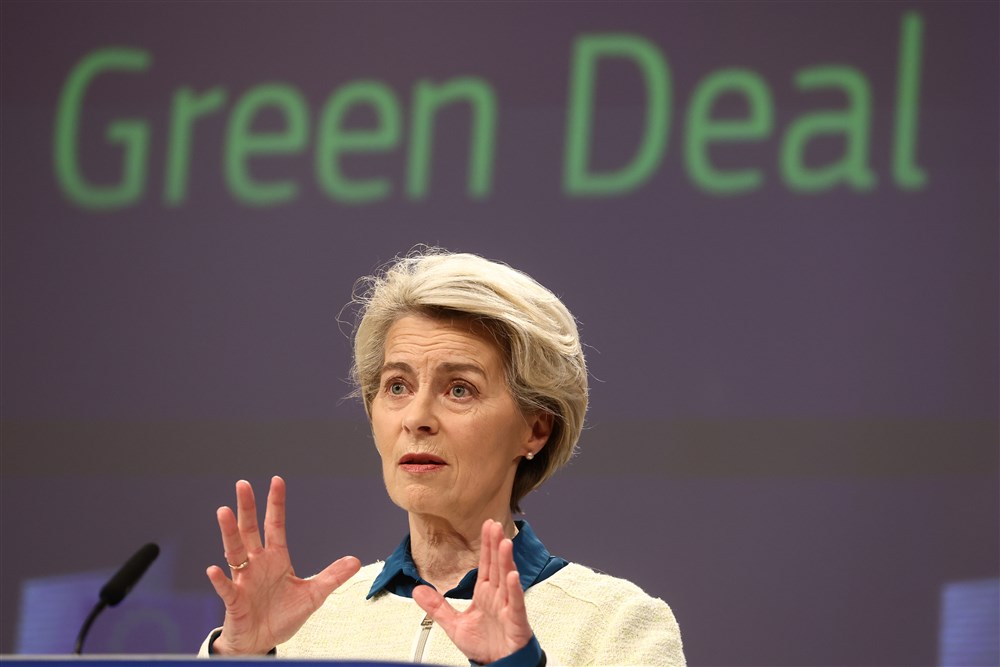Greenpeace activists on May 26 scaled the outside of the Residence Palace in Brussels, the seat of the European Council and European Union, spraying the building with an agricultural pesticide pump while hoisting a banner reading “Stop EU-Mercosur”.
Mercosur is a South American trade bloc formed in the early 1990s, whose full members include Argentina, Brazil, Paraguay and Uruguay.
The protest was against what Greenpeace describes as a “poisonous” trade deal between the EU and Mercosur, which the environmental organisation claims would aggravate what it sees as a global climate crisis by encouraging trade in agricultural products related to poisons.
Responding to the protest, local police said in a press statement: “We are going to review together with the administrative authorities [on] what action we will take on this.”
The environmentalists claim that lower tariffs and controls on products such as vehicle parts, pesticides derived in Europe and beef from South American countries, will only accelerate global ecological disintegration.
Referring to the protest, German Greenpeace campaigner, Lis Cunha, stated: “This trade deal is a disaster and threatens to undercut European farmers with cheap beef farmed at the expense of destroyed nature.”
She added: “And to destroy nature faster, European chemical companies will pump South America full of pesticides, including those deemed too toxic for use in the EU.”
Stated reasons that have prompted the Greenpeace action include a deal that provides for a substantial reduction in customs duties on several categories of goods such as certain foodstuffs and chemicals, which it says are banned in the EU.
The group is not alone in its concerns over the agreement; Belgium’s federal authorities indicated potential threats regarding agricultural products while EU-ombudsman Emily O’Reilly wants a full assessment of the proposal, pointing out that it may “undermine [EU values] and the public’s ability to debate the benefits of the deal”.





